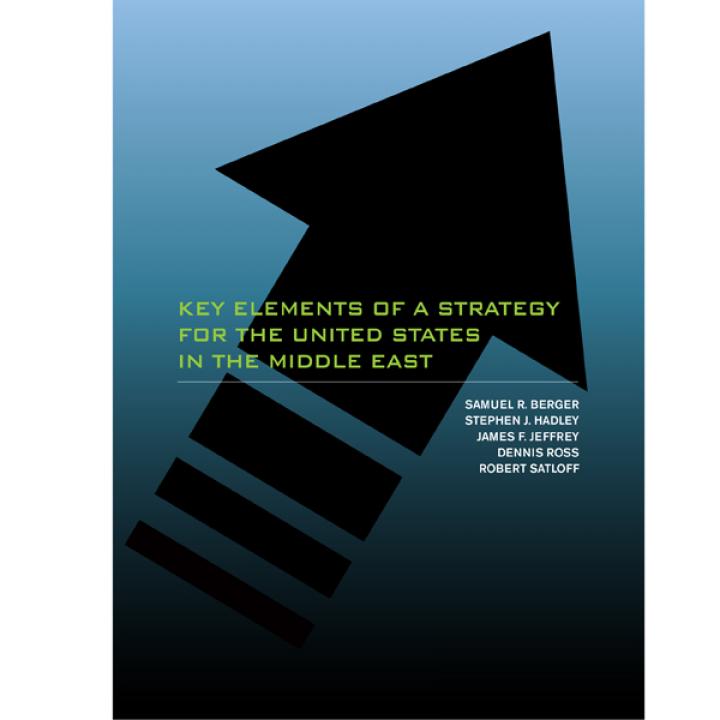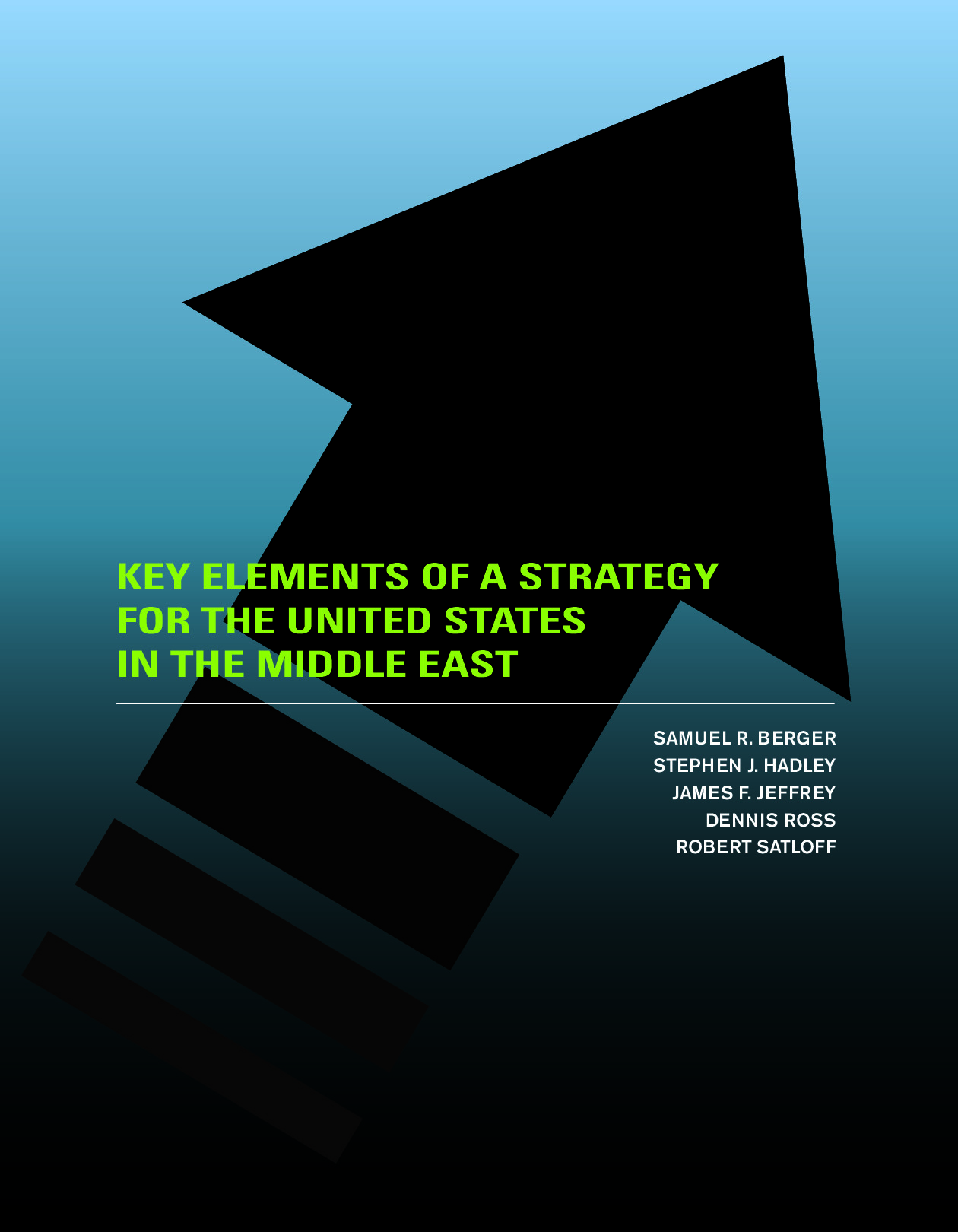
- Policy Analysis
- Policy Notes 24
Key Elements of a Strategy for the United States in the Middle East

The United States needs to take action to prevent the collapse of the state system in the Middle East and counter the rising influence of both Sunni and Shiite extremists, argues a new strategy report from The Washington Institute. Given the vital role that partnership with Sunni Arab states and peoples must play in this effort, "Iran cannot be a putative ally," the authors warn. (To read the full report, download the PDF.)
The new paper was written by a five-person bipartisan group that included two former national security advisors, Samuel Berger and Stephen Hadley; former U.S. ambassador to Iraq and Turkey James Jeffrey; former Obama administration official and longtime peace envoy Dennis Ross; and Institute executive director Robert Satloff.
Multiple and overlapping conflicts are threatening more than individual states: The entire architecture of the Middle East state system is at risk. The report argues, "Should this weakening trend continue, we will inevitably be forced to contend with plots against not just our friends but also against the American homeland." The Institute's new report offers elements of a new strategy to address this profound threat to U.S. interests.
"A strategy that preserves the state system in the Middle East, counters ISIS and rolls it back, reassures key Sunni leaders (even as we try to move them to become more inclusive and tolerant in governing), and counters the Iranians, will require a vision of how we want to move the region," the report states. "Put simply, it requires a vision in which we aim to weaken the radical Islamists -- whether Sunni or Shia."
On Iran, the authors note that a comprehensive nuclear agreement makes sense "if it allows Iran a peaceful nuclear program but denies it the capability of becoming a nuclear weapons state." In reaching the final accord, they urge the administration to work more closely with Congress now on the consequences of possible Iranian violations and provide tangible ways to reassure U.S. regional allies of U.S. commitment to their security.
More generally, the report urges action to diminish the influence of Iranian-backed Shiite militias and cautions against U.S.-Iranian cooperation in the battle against radical Sunni extremists. "Ultimately, if we hope to mobilize Sunni Arab populations of Iraq and Syria in opposition to ISIS -- an essential element to marginalizing it -- Iran cannot be a putative ally. The appearance of partnership will preempt any serious Sunni effort to delegitimize ISIS."
Key recommendations of the report include:
- Concentrate on inflicting setbacks on ISIS: "Defeats and losses of territory will reduce its appeal." The report notes that U.S. ground forces are not the answer but that a viable alternative is a "U.S. air campaign along with local Arab ground forces, with the assistance and support of enhanced numbers of U.S. advisors and Special Forces personnel."
- Work with local partners to create a safe haven inside Syria: "To restore our credibility and make it possible to build a more cohesive opposition that actually could change the balance of power on the ground, there needs to be a safe haven -- one that makes it possible to house refugees in Syria and that allows a legitimate, credible opposition to become more politically and militarily relevant from within Syria."
- Strengthen ties with key allies such as Egypt: "No strategy designed to bolster the state system in the Middle East is possible without a functioning U.S.-Egypt relationship."
- Engage privately with Israel to prevent further erosion in the bilateral relationship: "Washington should quietly reach out to the prime minister's office, perhaps with an administration outsider close to the president who could engage Netanyahu on Iran, the delegitimization movement, the Palestinian issue, and wider relations with the Arabs." The U.S.-Israel relationship, they argue, "is too important -- to each party and as a bellwether of American commitment to our allies in the region – to permit it to fray any further."






